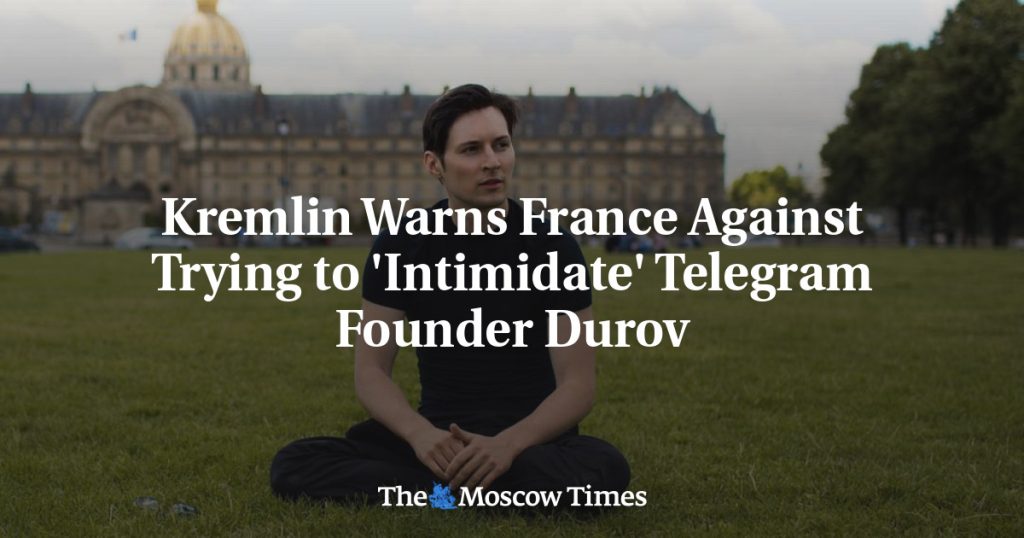The Kremlin has spoken out against France’s arrest of Telegram CEO Pavel Durov, calling the charges against him “very serious.” French prosecutors accuse Durov of failing to curb the spread of illegal content on Telegram, a claim that his company has denied. Kremlin spokesman Dmitry Peskov warned Paris against attempting to intimidate the tech entrepreneur, stating that such actions could be seen as an attempt to restrict freedom of communication. The arrest, which has raised questions about its timing and circumstances, was extended until Wednesday, according to an anonymous source close to the case.
French President Emmanuel Macron has denied that Durov’s arrest is politically motivated, despite the serious nature of the charges against him. Durov, a 39-year-old billionaire originally from Russia, holds citizenship in several countries, including France and the United Arab Emirates. The UAE has requested consular services for Durov and is closely following his case. The charges against Durov and his subsequent arrest have sparked international attention and concern, as they could have implications for freedom of communication and the rights of tech entrepreneurs around the world.
The situation involving Pavel Durov has raised concerns about freedom of speech and communication, as well as the responsibilities of tech companies to curb the spread of illegal content on their platforms. The Kremlin’s warning against attempts to intimidate Durov reflects a broader concern about the potential impact of his arrest on the tech industry and freedom of expression. The exact evidence supporting the charges against Durov remains unclear, leading to speculation about the motivations behind his detention. The involvement of multiple countries in this case, including France, Russia, and the UAE, highlights the international ramifications of Durov’s arrest.
The case of Pavel Durov underscores the complex legal and ethical challenges faced by tech companies in relation to content moderation and freedom of expression. Durov’s status as a high-profile tech entrepreneur and billionaire has drawn attention to these issues, as well as to the broader debate about the responsibilities of online platforms in policing illegal content. The response from the Kremlin and other international actors to Durov’s arrest reflects a growing awareness of the potential risks to freedom of communication posed by government actions targeting tech leaders. The outcome of Durov’s case could have significant implications for the future of online communication and the rights of individuals to express themselves freely.
The controversy surrounding Pavel Durov’s arrest highlights the need for greater transparency and accountability in the regulation of online platforms and the handling of illegal content. As governments around the world grapple with the challenges of regulating the digital space, cases like Durov’s raise important questions about the balance between freedom of expression and the need to prevent harm and criminal activities online. The international attention on Durov’s case demonstrates the global impact of decisions made by governments and tech companies in this increasingly interconnected digital age. The ultimate resolution of this case will likely have far-reaching implications for the tech industry and the protection of individual rights in the online sphere.
In conclusion, the arrest of Telegram CEO Pavel Durov on charges of failing to curb the spread of illegal content has sparked a heated debate about freedom of speech, tech regulation, and government overreach. The responses from the Kremlin and other countries involved indicate the international significance of this case, as well as the complexities of balancing competing interests in the digital realm. The outcome of Durov’s case will have lasting implications for the tech industry, online communication, and the broader debate about the responsibilities of companies and governments in the digital age. Ultimately, the case raises important questions about the future of online freedoms and the extent to which governments can regulate online content without infringing on individual rights.














